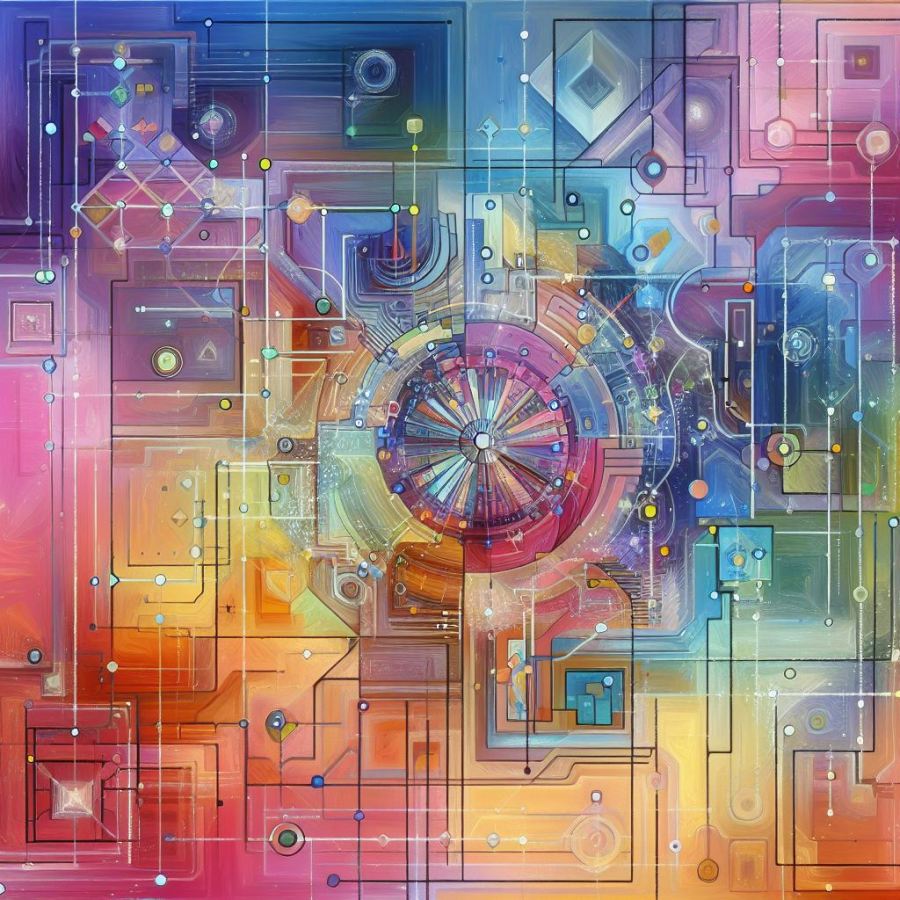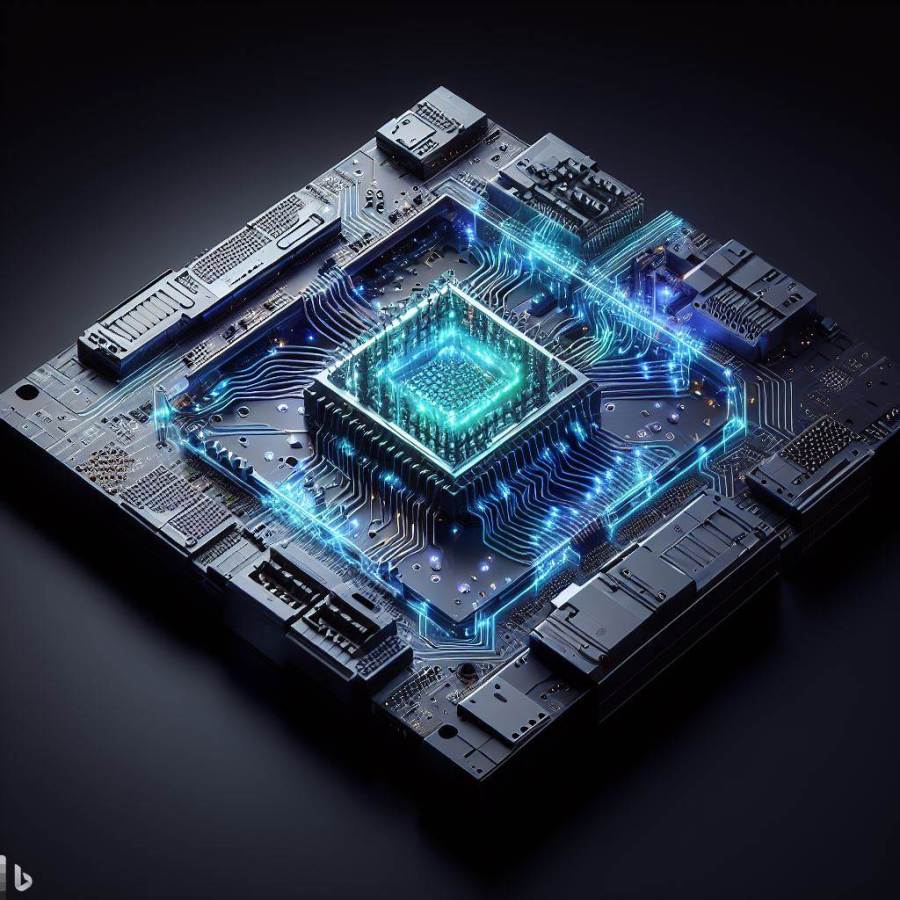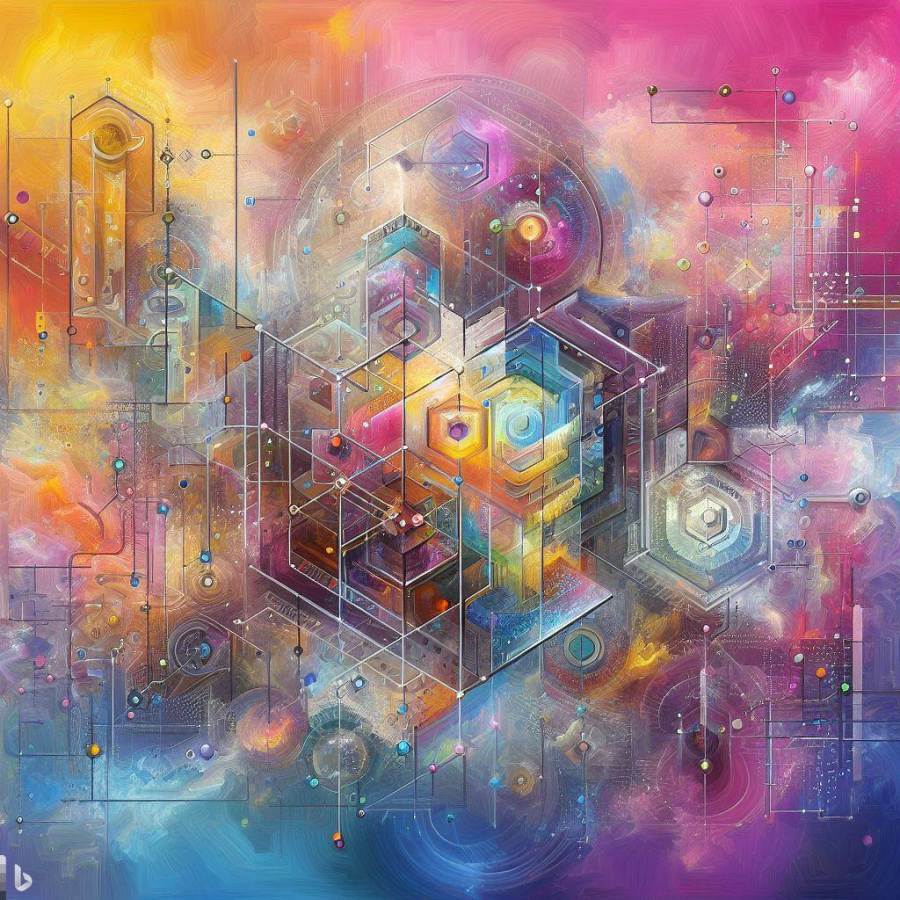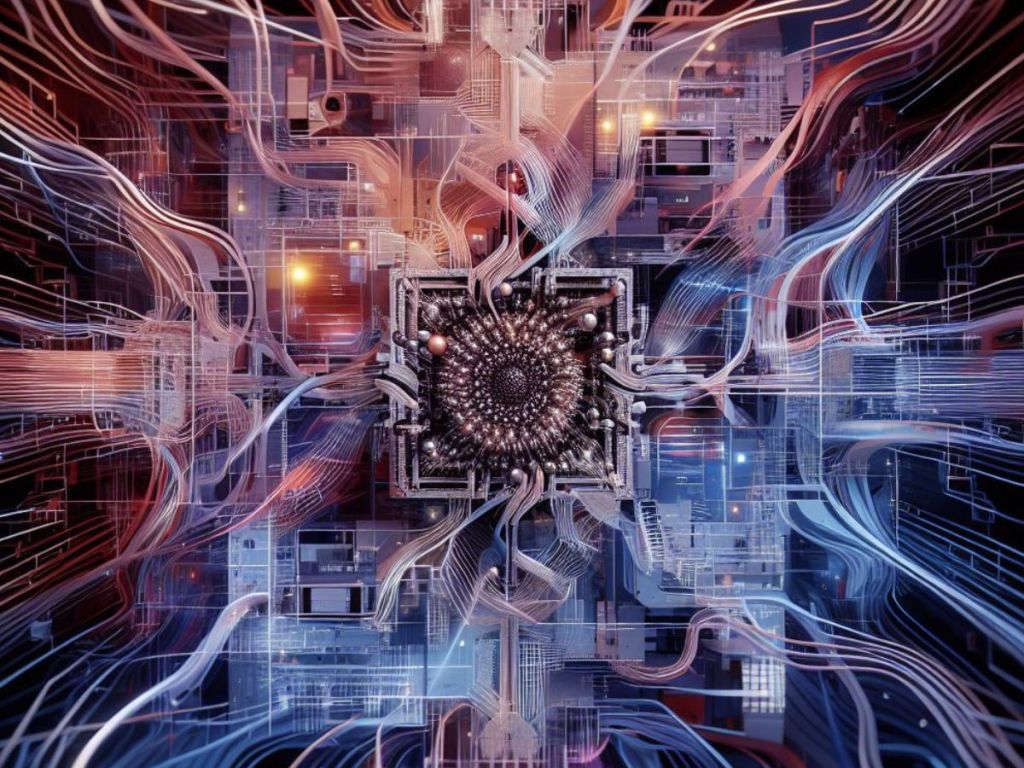What is quantum computing? You are about to find out.
Computers can do many things, such as playing games, browsing the web, and more. But did you know that there is a new kind of computer that can do things that normal computers cannot? This kind of computer is called a quantum computer, and it is based on the weird and wonderful world of quantum physics.
Quantum physics is the science that studies the smallest things in the universe, such as atoms, electrons, photons, etc. These things are so tiny that they behave in very strange ways, unlike anything we see in our everyday life. For example, they can be in two places at the same time, change their state depending on how we look at them, or be connected to each other even when they are far apart. These strange behaviours are called quantum phenomena, and they are the key to quantum computing.
Quantum computing is the idea of using quantum phenomena to store and process information, in a way that is faster and more powerful than normal computing. As such, Quantum computers can solve some problems that are very hard or impossible for normal computers, such as breaking codes, finding patterns, simulating nature, and more. Quantum computers can also help us understand and explore the mysteries of quantum physics, and maybe even discover new things that we never imagined before.
But how do quantum computers work and what can they do? And what are the challenges and limitations of quantum computing?
What are qubits?
Quantum computing is a new way of making computers that use the power of tiny particles called quantum bits or qubits. Qubits are different from the normal bits that we use in our phones, laptops and other devices. Normal bits can only be either 0 or 1, like a switch that is either on or off.
Qubits, strangely, can be both 0 and 1, even at the same time. Think of it like a coin which is spinning but not yet stopped. This is called superposition, and it means qubits can store more information than normal bits.
Qubits can also do something else that normal bits cannot: they can entangle with each other. This means that two or more qubits can share a special connection, so whatever happens to one of them affects the other one, even if they are far apart. This is called entanglement, and it means qubits can work together in ways normal bits cannot.
Why is quantum computing so amazing?
Quantum computing is so amazing because it can solve some problems that are very hard or impossible for normal computers. For example, quantum computers can:
-Break secret codes that are used to protect important information on the internet, such as passwords, bank accounts, and messages. This could make the internet more secure or less secure, depending on who has the quantum computer and what they do with it.
-Simulate how atoms and molecules behave in nature, such as how they form new materials, drugs, or fuels. This could help scientists discover new things and make better products for our health and environment.
-Find patterns in large amounts of data, such as how people vote, shop, and travel. This could help businesses, governments, and researchers make better decisions and predictions.

How does quantum computing work?
Quantum computing works by using special devices that can create and control qubits. They are very small, very cold, and very sensitive. They need to be isolated from any noise or disturbance that could make the qubits lose their superposition or entanglement. This is called decoherence, and it is one of the biggest challenges for quantum computing.
There are different types of devices that can create and control qubits, such as superconductors, ion traps, or photons. Each type has its own advantages and disadvantages, such as how many qubits it can have, how long it can keep them, and how fast it can manipulate them. Scientists and engineers are working hard to improve these devices and make them more powerful and reliable.
To use a quantum computer, developers need to write special programs that tell the qubits what to do. These programs are called quantum algorithms, and they are different from the normal programs we use in our phones, laptops, and other devices. They use the principles of quantum mechanics, such as superposition and entanglement, to make the qubits perform calculations faster or better than normal computers. Some quantum algorithms are very clever and can take advantage of the randomness and interference of qubits to get the right answer.

What are the challenges of quantum computing?
Quantum computing has many potential applications and challenges, both in theory and in practice.
Cryptography
Quantum computers can break some of the most widely used encryption schemes, by using quantum algorithms. This poses a threat to the security and privacy of many systems and services that rely on encryption, such as online banking, e-commerce, and communication. On the other hand, quantum computers can also enable new forms of encryption, such as quantum key distribution and quantum cryptography, that are secure against quantum attacks.
Artificial Intelligence
Quantum computers can enhance some of the methods and techniques of artificial intelligence, such as machine learning, optimisation, and natural language processing. This can lead to new solutions in areas of life, such as health, entertainment and education.
Medicine
Quantum computers can simulate and model complex biological systems and processes, such as molecules, proteins, and cells, by using quantum algorithms such as quantum chemistry and quantum biology. This can help in the discovery and development of new drugs, vaccines, and therapies, as well as in the diagnosis and treatment of diseases and disorders.
Physics
Quantum computers can explore and understand the fundamental laws and phenomena of nature, such as quantum mechanics, relativity, and cosmology, by using quantum algorithms such as quantum simulation and quantum metrology. This can help in the advancement and innovation of science and technology, as well as in the resolution of some of the open questions and mysteries of physics.

Further challenges:
Scalability
Quantum computers are mind bendingly difficult and expensive to construct and maintain. They need special materials and conditions to exist, such near-zero temperatures, superconductors and lasers. This is just to operate and preserve the qubits. The current state-of-the-art quantum computers have only a few dozen qubits, while the ideal quantum computers would need millions or billions of qubits to perform useful and practical tasks.
Error Correction
Quantum computers are very prone to errors and noise, as they are affected by decoherence, interference, and measurement. The current quantum computers have very high error rates, which limit their reliability and accuracy. The best quantum computers would need robust techniques to detect errors and noise, and then fix them.
Programming
Quantum computers are very different from normal computers, and they require a new paradigm and language of programming. The current quantum computers have very limited and specific capabilities, and they require a lot of optimisation and fine-tuning to perform the desired tasks.
What is the future of quantum computing?
Quantum computing is still a new and developing technology with a lot of potential and challenges. Today, we have quantum computers that can have a few dozen qubits, but they are not very stable or accurate. They are mostly used for research and experimentation, not for practical applications. We need quantum computers that can have thousands or millions of qubits, and that can work without errors or noise. This is called quantum advantage, and it is the goal of quantum computing.
To achieve quantum advantage, developers need to overcome many technical and scientific obstacles, such as making better qubits, devices, and algorithms. Devs also need to consider the ethical and social implications of quantum computing, such as how it will affect our security, privacy, and society.
What is quantum computing? Conclusion
Quantum computing is a fascinating and promising field of computer science that harnesses the power and potential of quantum physics to perform computationsbeyond the reach of normal computers.
As such, Quantum computers have a broad range of uses, such as in artificial intelligence, cryptography, medicine, and physics. Quantum computing is still in its infancy and faces many obstacles and difficulties, such as scalability, error correction, and programming.
However, quantum computing is also a source of innovation and inspiration, and it opens up new horizons and possibilities for the future of computing and humanity.
This article was fact checked by Stephen Kelly, Chief Technical Architect and Senior Software Engineer at BySapio.





